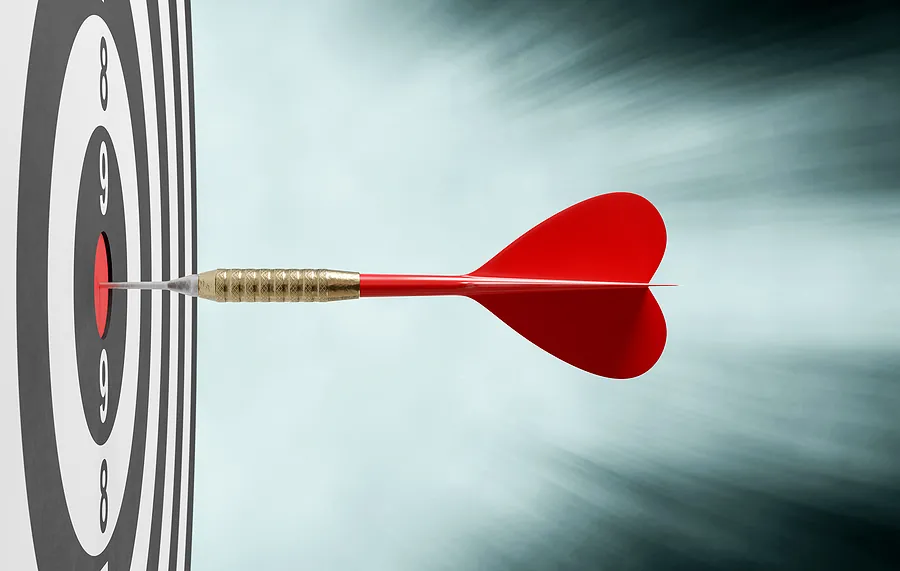The Dangers of Average Sales Skills

Has your sales department ever calculated the cost of sales reps with average sales skills? I am still trying to figure out the answer, but my initial thought was ten percent of top-line revenue. However, upon deeper reflection, it’s unequivocal that top sales reps are exponentially more productive than average reps. Therefore, the cost of sales reps with average sales skills is a number most companies cannot afford.
The post-pandemic sales boost has faded, and now companies are scrutinizing how they allocate their more limited resources. Organizations across all industries are exercising greater caution given the macroeconomic uncertainty. Today the customer will select the winners moving forward. If sales success is in the hands of the customers, sales reps will need new skills to outperform the average. Sales reps questioning if they have the skills to compete in this new environment are likely already falling behind. This article explores the pitfalls of average sales skills and the path to high performance.
The Cost of Average
How do we quantify the cost of average sales skills? It’s a complex number to calculate because it’s a hypothetical exercise, and the money never flowed. It’s also a number that is easy to ignore because most sales leaders are focused on the impact of underperforming sales reps on their bottom line. With average reps, they say, “We’ll get the next one,” and chalk it up to “Can’t win them all.” But let’s assume that the average sales skills are only costing a company ten percent in missed opportunities, that would be $100,000 per every million in the sales pipeline.
To put that number in perspective, consider it from a CFO viewpoint. Suppose the CFO was auditing the books. They found an employee who was embezzling $100,000 annually from the company. There would be no debate to investigate and bring legal proceedings against the employee. However, because the $100,000 shortfall from average sales skills is money never received, sales leaders are more comfortable ignoring average sales skills.
Every business has an annual budget for marketing, technology, and payroll. Sales departments could benefit by creating a budget for blown sales opportunities for the fiscal year. The blown sales opportunities budget will keep track of sales they should have won but didn’t. Once they exceed their budget, they will know skill improvement is required. Rest assured, if sales skills are average, opportunities are being missed. Some sales organizations likely would exceed their blown sales budget in the first quarter.
Here’s a real-world example. A SaaS technology provider with a ten person inside sales team had an average closing rate of 30 percent. However, their top rep was closing almost 50 percent of the opportunities presented to him. The company considered this sales rep their superstar and felt lucky to have him. They accepted a 30 percent closing rate as average and held the sales team to that benchmark. However, closing the skills gap between the superstar and the average would double sales without adding headcount or increasing the marketing budget.
Skills are the New Currency
As we meet with customers and sales professionals, a few things are increasingly apparent. Skills are the new currency, and companies are increasingly adopting a skills-based approach to selling. Additionally, a growing number of sales reps are individually investing in their own skill-building to keep up with the increased competition. These sales reps recognize that their income is tied to their skill development.
The hidden cost of average sales skills can have far-reaching consequences for businesses in today’s competitive marketplace. One of the highest hidden costs is limited innovation. By default, “average” represents the status quo. The status quo generates complacency. Average sales skills encourage reps to think, “This is good enough,” and discount the need for improvement. To drive innovation, sales reps, and their leaders need to set higher expectations.
Another hidden cost of average sales skills is customer dissatisfaction. Average sales skills create average customer relationships. These relationships are equitable. The customer pays for a service and, in exchange, receives an equal amount of value. However, what these equitable relationships don’t produce are testimonials, referrals, and lifetime loyalty. If your average customers are not consistently providing testimonials and referrals, how satisfied can they really be?
Early in their careers, sales professionals view developing sales skills as the ability to close the deal. They learn basic sales tactics combined with product and industry knowledge and march forward in their sales career. They then repeat these tactics over the next few years. They may have five years of industry experience but only one year of sales skill development. Overreliance on sales tactics is the fundamental cause of average sales performance.
Using sales tactics blindly is like a doctor prescribing a treatment for a disease the patient does not have. Sales tactics are the minimum level of sales skill development and discount the customer’s view of the entire sale process. Lifetime client value, customer satisfaction, and referrals are concepts foreign to some sales reps. If average sales skills produce average customer satisfaction, what impacts exceptional customer satisfaction?
Dr. Albert Mehrabian, a professor at UCLA, conducted a study to find out what determines an individual’s communication impact. The study’s results help us understand high-performing sales reps’ effectiveness. The study found:
- 7 percent of communication impact is determined by the words used.
- 38 percent of communication impact is determined by voice: how confident we sound.
- 55 percent of communication impact is determined non-verbally: appearance, posture, gestures, eye contact, and facial expressions.
This study suggests that while what we say is important, how we say it is critical. Two sales reps could deliver an identical message, word for word, but if one rep lacks eye contact, they will undermine their credibility and negatively impact their chances of winning the business. Eye contact may sound like a trivial skill to average reps, but for top performers, every behavior matters.
Our experience in sales training shows that 50 percent of sales reps regularly miss quotas or underperform. Within the group of reps achieving quota, only the top 10 percent can be viewed as high-performing. From our experience, the percentage of high-performing sales reps can and should be significantly higher. Most sales reps never tap their full potential. Sales reps remain average because they:
- Don’t commit to improving.
- Don’t attend sales training.
- Don’t seek objective feedback from an expert.
- Don’t have a system to develop sales skills.
- Don’t know how to practice and role-play.
Selling does not happen in a vacuum. Closing the sale is not just about solving your customer’s problem. It’s about solving the customer’s problem better than the competition. This means sales reps compete against another product and company and how the customer perceives the sales rep compared to another salesperson.
Average sales skills disregard the impact of the customer’s perception of the salesperson. The thinking is, “We have the best product. We’ll win the business.” But 10 percent of the time, the best product does not win. In this instance, the sales rep with better sales skills won the business.
Combining Passion and Skill Development
At Janek, we frequently interview business executives and ask them what makes a top-performing sales rep. Passion is often the number one response. The logic is, “If the salesperson is not passionate about their product, why should the prospect be?” This logic is sound to a degree.
High-performing sales reps radiate passion. Passion brings several benefits for sales reps, including:
- Passion makes them better equipped to explain the product’s benefits and unique selling points. Passion increases their credibility and expertise with prospects.
- Passion enhances their ability to overcome objections.
- Passion makes the sales process more enjoyable, leading to better motivation and performance.
However, passion alone is not enough to be successful in modern sales. The problem with passion is that it derives from emotions rather than discipline. Developing sales skills such as effective communication, negotiation, and problem-solving requires discipline. At Janek, we call these Critical Selling Skills. Learning to engage modern customers with passion and mastery of sales skills allow sales reps to handle the most challenging sales scenarios.
Sales leaders have two challenges: manage the organization’s sales performance and the sales reps’ skills that will deliver those results. Unlocking the performance potential of individual sales reps is exactly what high-performing sales leaders do. Sales organizations that aspire to be industry-leading do not accept average as the final benchmark.
Benign neglect is the top contributor to average sales skill development. These skills are adequate to meet minimum standards. The trouble with most sales reps is that they would rather be ruined by praise than saved by criticism. Nick Saban calls praise “Rat Poison.” This means that when his team starts believing in all the glory they receive in the media, they usually end up playing poorly. When the sales reps settle for average standards, they have no incentive to improve their skills. The thinking is, “There’s no need to improve. I’m already meeting the standard.”
Conclusion
The destiny of any sales team is not a matter of chance. It is a matter of choice. If a sales leader cannot convince the sales team to develop their sales skills, they cannot help them improve. Recognizing and addressing the hidden cost of average sales skills is crucial for businesses to remain competitive and succeed in today’s market. By investing in sales training, tools, and resources, companies can improve their sales skills and drive better results, ultimately increasing profitability and growth.
In sales, every presentation counts. Sales leaders must not accept average when the team could be exceptional. Those who practice their sales skills improve. Those who don’t, don’t. Once a sales team achieves exceptional, they will never accept average. Aristotle said, “We are what we repeatedly do. Excellence then is not an act, but a habit.” If you don’t think average sales skills cost you revenue, keep your fingers crossed and hope your competitors feel the same way.

- Account Planning (11)
- Awards (49)
- Client Testimonial (37)
- Personal Branding (19)
- Podcast (11)
- Research (70)
- Sales Career Development (87)
- Sales Coaching (156)
- Sales Consulting (137)
- Sales Culture (170)
- Sales Enablement (354)
- Sales Leadership (109)
- Sales Management (248)
- Sales Negotiation (16)
- Sales Prospecting (125)
- Sales Role-Playing (18)
- Sales Training (235)
- Selling Strategies (263)
- Soft Skills (70)
- Talent Management (94)
- Trusted Advisor (27)
- Virtual Selling (49)
- Webinar (9)


























